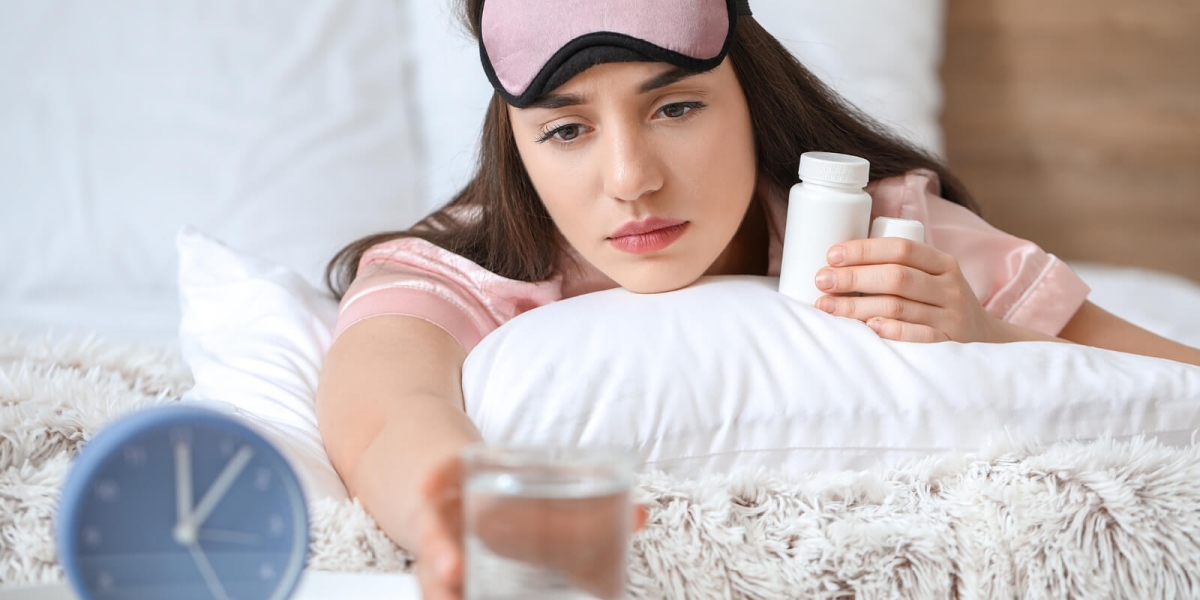One of the most common types of sleep aids available are over-the-counter or nonprescription sleep medications. These are formulations that contain various active ingredients designed to promote sleep without requiring a prescription. Some popular OTC sleep aids include:
Diphenhydramine (Benadryl) - This antihistamine medication is commonly used as an OTC sleep aid due to its sedative effects. It works by blocking histamine receptors in the brain. Some potential side effects may include next-day drowsiness, dry mouth, and constipation. The recommended adult dosage is 25-50 mg taken 30-60 minutes before bedtime.
Doxylamine (Unisom) - This antihistamine is also frequently used as an OTC aid and works in a similar manner to diphenhydramine by blocking histamine receptors. Doxylamine may cause side effects like drowsiness, dry mouth, constipation, and next-day drowsiness. The recommended adult dosage is 25 mg taken 30-60 minutes before bedtime.
Melatonin - This hormone supplement can help promote sleep in some people by regulating circadian rhythm. It's produced naturally by the body. Potential side effects are rare but may include daytime drowsiness, headaches, or nausea. The recommended adult dosage varies from 1-5 mg taken 30-60 minutes before bedtime.
Valerian root - This herb is thought to work as a mild sedative and has been safely used for centuries as a calming supplement. While side effects are usually mild, some reports of drowsiness, headaches, and digestive issues have occurred. The recommended adult dosage is 400-900 mg taken 30-60 minutes before bedtime.
Prescription Sleeping Pills
For those with more severe or chronic insomnia disorders, prescription strength sleeping pills may provide stronger and more targeted effects compared to OTC options. Here are some common prescription sleep aids:
Eszopiclone (Lunesta) - This nonbenzodiazepine acts on GABA receptors in the brain to induce sleepiness. Common side effects may include next-day drowsiness, dizziness, headaches and unpleasant taste in the mouth. The usual adult dosage is 1-3 mg taken right before bed.
Zolpidem (Ambien) - As a nonbenzodiazepine hypnotic, zolpidem promotes sleep by enhancing the effects of the inhibitory neurotransmitter GABA. Potential side effects include dizziness, headaches, nausea and next-day impairment. The standard adult dosage is 5-10 mg taken right before bed.
Zaleplon (Sonata) - This short-acting nonbenzodiazepine promotes sleep by binding to omega-1 GABA receptors in the brain. Common side effects may consist of headaches, dizziness and gastrointestinal issues. Adults generally take 5-10 mg right before bedtime.
Alternative Sleep Aids
For those seeking gentler options, various alternative products are also utilized as sleep aids by some people:
CBD oil - Studies suggest cannabidiol may provide relaxation and relieve anxiety which helps with sleep, but more research is still needed. Potential side effects could include fatigue, diarrhea, and changes in appetite. The recommended adult dosage ranges from 5-40 mg usually taken 1-2 hours before bedtime.
Lavender - This popular essential oil is sometimes diffused or added to baths for its stress-reducing, calming aroma. Reported risks are minimal at normal usage levels. Ten to fifteen drops added to bath water or one to two drops inhaled directly can aid relaxation before bed.
Chamomile tea - Thought to have mild sedative effects, drinking a warm chamomile tea 1-2 hours prior to bedtime can help induce relaxation. Allergic reactions to chamomile are possible in sensitive individuals.
Magnesium - A mineral supplement involved in muscle relaxation and many bodily functions. Various forms like glycinate, malate or citrate taken at bedtime may provide mildly soporific benefits for some. Gastrointestinal side effects are possible at very high doses. Standard adult dose is 200-400 mg.
Given the many options available, consulting with your doctor can help determine which of these sleep aids may be the safest and most effective choice for you based on your unique conditions and needs. Always follow dosage instructions carefully to minimize risks of side effects. With the right approach, getting sound sleep is definitely achievable.
Anushka Jadhav
35 Blog posts









